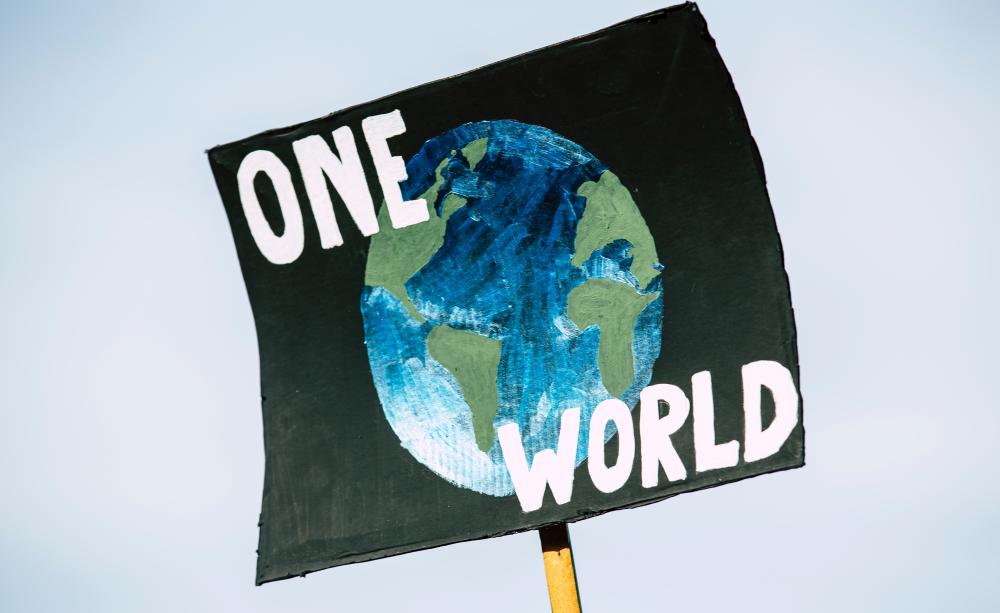Schumacher looked towards a future powered by renewable energy and localised supply chains.
We’re bringing together leading economists, writers and activists to unpick some of the greatest questions of our times. How do we regenerate our economies, what would a future without fossil fuels look like, and how do we localise our supply chains to fairly distribute wealth?
The SMALL IS THE FUTURE event is taking place on Saturday, 17 June 2023 at the Paintworks, Bristol. Buy tickets here. If you want to attend the event but cannot afford a ticket email [email protected].
We do understand that these questions are enormous, ridden with complexities, and that there are no overnight solutions, certainly not ones that will be solved in the short space of a day event. And yet we hope that SMALL IS THE FUTURE will be a reference point, a way of navigating our way through the chaos of climate breakdown.
We are proud to host a distinguished panel of economists, including Ann Pettifor, renowned economist and author of the influential book The Case for a Green New Deal; James Meadway, economist and co-author of The Cost of Living Crisis (and how to get out of it); and Satish Kumar, the editor emeritus of Resurgence & Ecologist magazine, and a founder of Schumacher College.
Salt
During the cost-of-living crisis, global energy giants have been raking in soaring profits. Shell reported record-breaking earnings of almost US$40 billion for the full year of 2022, almost double those of 2021. If that isn’t enough salt in the wound, Exxon Mobil reported US$56 billion in annual profit, a record for the company.
We live in times of unprecedented economic inequality, driven by the greed of a few – accumulating wealth at the cost of all living systems on the planet.
It has been calculated that 47.8 per cent of global household wealth is in the hands of just 1.2 per cent of the world's population, according to a new Credit Suisse report. I could keep throwing statistics around, but I think we all get the point.
It was the same point E.F. Schumacher had made back in the 1970s, when the concept of ‘small is beautiful’ worked as an antidote to the capitalistic philosophy of ‘big is best’.
Schumacher looked towards a future powered by renewable energy, localised supply chains and an economy that is based on nature’s regenerative ways, which Schumacher coined as ‘economy of permanence’. That is, the state of lasting, of being a viable way to sustain life on earth for generations to come.
Radical
It’s no surprise that young people, particularly those in the global south, recognise the climate emergency and feel fearful about the future.
The Intergovernmental Panel on Climate Change emphasises that by 2040, climate breakdown will lead to numerous risks to natural and human systems if we continue on a path towards a global temperature rise of 1.5 degrees Celsius.
But what would a just transition away from fossil fuels look like? Is the Green New Deal radical enough to create the fundamental change that we need? As activists in these current times, do we have the skills, knowledge and drive to help us navigate the unprecedented human and ecological catastrophe.
It's clear that whilst we’re able to identify the problems, it’s harder to come up with solutions. We hope SMALL IS THE FUTURE will be a starting point. We welcome all who are curious to learn about the ways in which the current destructive economic system could be turned on its head to benefit all.
We hope to see you on Saturday, 17 June 2023 at the Paintworks – where we’ll be discussing what a smaller future might look like, and how we’re going to get there.
This Author
Yasmin Dahnoun is assistant editor at The Ecologist. Buy tickets here. The SMALL IS THE FUTURE event is taking place on Saturday, 17 June 2023 at the Paintworks, Bristol. Speakers include Dr Ann Pettifor, Charlie Hertzog Young, Satish Kumar, Professor Herbert Girardet and Gareth Dale. Buy tickets here. If you want to attend the event but cannot afford a ticket email [email protected].







